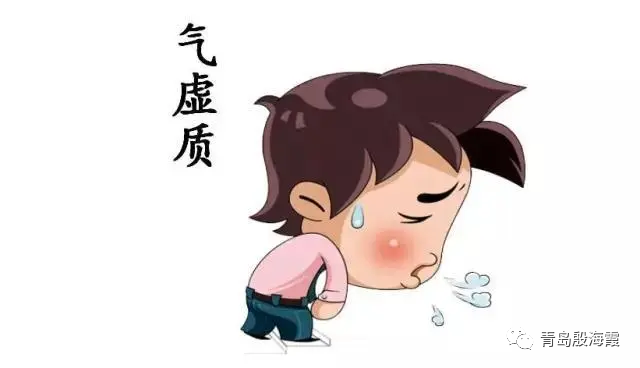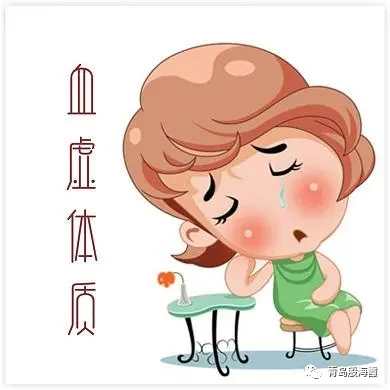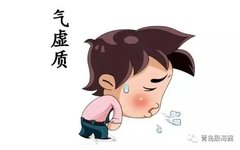
Body deficiency is categorized into four types: Qi deficiency, Blood deficiency, Yin deficiency, and Yang deficiency.
1. “Qi Deficiency”:

The main manifestations of Qi deficiency include: shortness of breath, fatigue, low voice, shortness of breath upon exertion, easy sweating, dizziness, palpitations, pale yellow complexion, poor appetite, internal heat, spontaneous sweating, prolapse of the rectum, uterine prolapse, pale and swollen tongue with tooth marks on the sides, weak pulse, etc. This indicates a decline in function, which may not necessarily indicate disease. Qi deficiency patients need Qi, and Qi-tonifying herbs such as Ren Shen (Ginseng), Huang Qi (Astragalus), and Dang Shen (Codonopsis) can be used.
Foods to Tonify Qi Deficiency:
Beef, chicken, pork, glutinous rice, soybeans, white lentils, jujubes, crucian carp, carp, quail, yellow eel, shrimp, mushrooms, etc. can be alternated regularly.
Foods to Avoid for Qi Deficiency:
Hawthorn, bergamot, areca nut, garlic, turnip greens, coriander (cilantro), rutabaga, pepper, cardamom, middle finger, perilla leaves, mint, lotus leaves;
Limit or Avoid:
Buckwheat, pomelo, mandarin, kumquat, kumquat cake, orange, water chestnut, raw radish, earthworm, mustard greens, garlic chives, ginger, sand ginger, chrysanthemum, tea leaves, and tobacco.
Recommended Dishes:
Huai Shan (Chinese yam) and lily lotus seed soup; Ginseng and medicinal pigeon stew; Five-spice beef; Peanut and jujube braised pig trotters;
2. “Blood Deficiency”:

The main manifestations of Blood deficiency include: pale yellow complexion, pale lips and nails, dizziness, fatigue, blurred vision, palpitations, insomnia with vivid dreams, dry stools, women experiencing irregular menstrual cycles with light flow and pale color, pale tongue, thin white coating, weak pulse, etc.; To tonify Blood, methods such as nourishing and generating Blood should be used. Blood-tonifying herbs include Dang Gui (Angelica), E Jiao (Donkey-hide gelatin), Shu Di Huang (Rehmannia), and Sang Shen (Mulberry fruit).
Foods to Tonify Blood Deficiency:
Silkie chicken, black sesame, walnut meat, longan meat, chicken, pig’s blood, pig liver, brown sugar, red beans, etc. can be alternated regularly.
Foods to Avoid for Blood Deficiency: water chestnut, garlic;
Recommended Dishes:
Dang Gui and Shu Di Silkie chicken; Huai Shan beef brisket stew; Huai Ju (Chrysanthemum) and hairtail fish; Rose and Huai Ju drink;
Limit or Avoid:
Seaweed, grass cardamom, lotus leaves, white liquor, mint, chrysanthemum, areca nut, raw radish, etc.
3. “Yin Deficiency”:

Also known as Yin deficiency with excessive heat, commonly referred to as “false heat”, the main manifestations of Yin deficiency include: fear of heat, irritability, flushed cheeks, dry mouth and throat, dry stools, short and yellow urine, tongue with little moisture, five palms (the palms of both hands, both feet, and the top of the head) feeling hot, night sweats, sore lower back, nocturnal emissions, red tongue, thin or peeled coating, thin and rapid pulse, etc.
To tonify Yin, methods such as nourishing and enriching Yin should be used. Herbs for Yin deficiency include Sheng Di (Rehmannia), Mai Dong (Ophiopogon), Yu Zhu (Polygonatum), pearl powder, white fungus, Cordyceps, and Dendrobium.
Foods to Tonify Yin Deficiency:
Soft-shelled turtle, bird’s nest, lily, duck meat, black fish, jellyfish, lotus root, enoki mushrooms, goji leaves, water chestnuts, and raw pears can be alternated regularly.
Foods to Avoid for Yin Deficiency: pepper, cinnamon;
Limit or Avoid:
Dog meat (for patients with cerebrovascular issues), lamb (for hepatitis patients), sparrow meat, seahorse, sea dragon, deer meat, crispy rice, fried peanuts, fried soybeans, fried melon seeds, popcorn, lychee, longan, bergamot, bayberry, garlic, chives, mustard greens, chili, garlic chives, ginger, sand ginger, grass cardamom, Sichuan pepper, white cardamom, star anise, fennel, clove, mint, white liquor, cigarettes, red ginseng, Cistanche, and cynomorium.
Recommended Dishes:
Golden pot tofu; Huai Shan small bundle meat; Huai Ju jujube and white fungus soup; Soft-shelled turtle and Huai Niu Xi soup; Farmer’s grilled fish; Huai Shan one-dish elbow; Golden pot tofu; Huai Shan stewed native chicken; Ginseng and medicinal pigeon stew; He Shou Wu stewed pig liver;
4. “Yang Deficiency”:

Also known as Yang deficiency with declining fire, this is a further development of Qi deficiency. The main manifestations of Yang deficiency include: in addition to the symptoms of Qi deficiency, there is a fear of cold, cold extremities, preference for warm drinks, often low body temperature, sore lower back and legs, impotence, cold pain in the lower abdomen, fatigue, difficulty urinating, pale thin tongue, white coating, and deep thin pulse, etc.
To tonify Yang, methods such as warming and benefiting Yang should be used. Yang-tonifying herbs include Hong Shen (Red Ginseng), Lu Rong (Deer Antler), Du Zhong (Eucommia), Cordyceps, cinnamon, and seahorse.
Foods to Tonify Yang Deficiency:
Yellow beef, dog meat, lamb, bull penis, sea cucumber, mussels, walnut meat, longan, quail, eel, shrimp, chives, cinnamon, and fennel can be alternated regularly.
Foods to Avoid for Yang Deficiency:
Duck meat, rabbit meat, otter meat (water dog meat), sweet melon;
Limit or Avoid:
Duck blood, duck eggs, E Jiao, milk, yogurt, soft-shelled turtle, crab, field snail, snail meat, clam meat, fresh persimmon, persimmon cake, pomelo, mandarin, banana, fig, watermelon, green bitter melon, sweet potato, vegetable melon, raw lotus root, raw radish, loofah, winter melon, seaweed, earth ear, enoki mushrooms, straw mushrooms, water spinach, and Luo Han Guo.
Recommended Dishes:
Seahorse and nourishing chicken; Three penis nourishing waist soup; Chives and nourishing shrimp; Stir-fried kidney; Long-life stewed old duck;
5. “Dual Deficiency”:
Individuals with body deficiency often exhibit dual deficiency, which can manifest in the following ways:
Qi and Yin Dual Deficiency:
This condition presents both Qi deficiency and Yin deficiency symptoms, including dizziness, fatigue, and weakness of the legs, along with signs of heat and dryness. This body type is referred to as Qi and Yin dual deficiency. To tonify, methods that benefit both Qi and Yin should be employed, considering both aspects during supplementation.
Yin and Yang Dual Deficiency:
This condition presents both Yin deficiency and Yang deficiency symptoms, characterized by a fear of both cold and heat. In winter, there is a fear of cold, while in summer, there is a particular fear of heat. This indicates an imbalance of Yin and Yang or a dual deficiency of Yin and Yang. To tonify, methods that nourish Yin and warm Yang should be employed.
Qi and Blood Dual Deficiency:
Qi and Blood dual deficiency generally occurs in conditions such as anemia, leukopenia, thrombocytopenia, after significant blood loss, or in women with excessive menstrual bleeding. The main manifestations include both Qi deficiency and Blood deficiency symptoms. To tonify, methods that benefit Qi and generate Blood should be employed, focusing on both aspects.
This article’s images are sourced from the internet. The text has been authorized by the author; please indicate the source if reprinted.
Editor for this issue: Li
|
Previous Issues |
Tonifying Qi, Breaking Qi, Regulating Qi |
|
Causes of Excess Dampness |
|
|
Gout and Dietary Recommendations |
|
|
Insufficient Qi and Blood |
For more health knowledge
Please long-press the image on the left below
Scan the QR code
Add WeChat ID “Qingdao Yin Haixia”
Or
Add the mini-program on the right below
To learn more about health products




